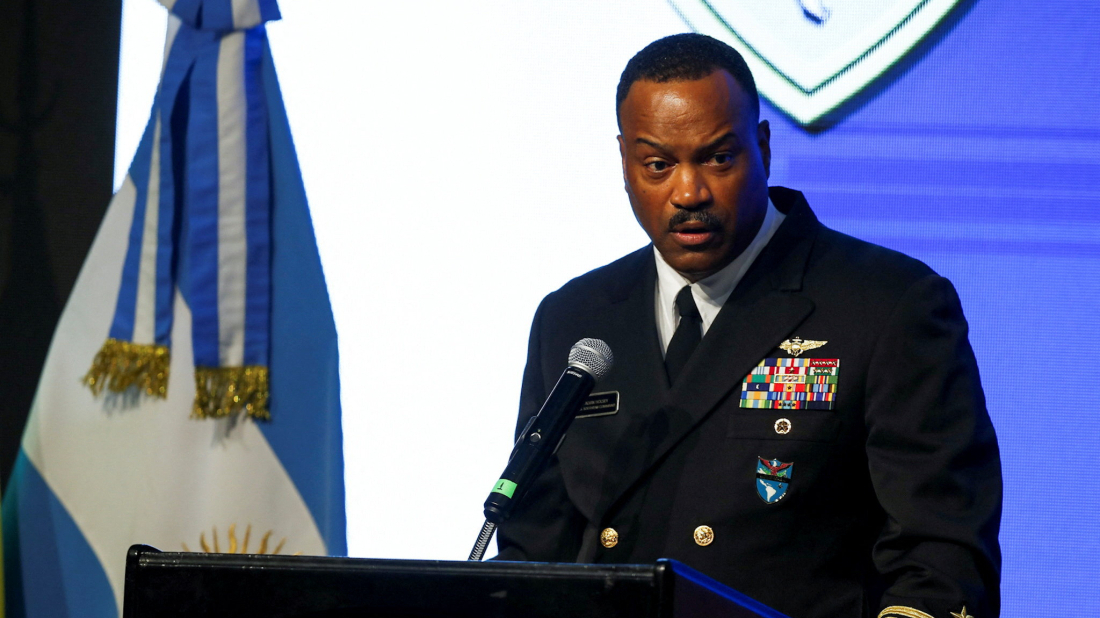China being used to bypass sanctions on foreign cars in Russia, report suggests
Russia’s car market is continuing to receive tens of thousands of foreign-brand vehicles via China despite sanctions imposed after Moscow’s full-s...

Admiral Alvin Holsey, head of U.S. military forces in Latin America, will step down at the end of the year, two years earlier than expected, amid rising friction with Venezuela.
Secretary of War Pete Hegseth confirmed Holsey’s departure on Thursday, calling it an unexpected move. Sources told Reuters that tensions had grown between the admiral and Hegseth over Caribbean operations, with speculation mounting that he could be dismissed before his resignation was announced.
Senator Jack Reed, the top Democrat on the Senate Armed Services Committee, described the development as “troubling,” warning that it comes as fears of a potential confrontation with Venezuela are increasing. Reed said Holsey’s resignation reflects deeper concerns about Washington’s handling of recent military campaigns and disregard for senior officers’ advice.
Hegseth did not explain the reason behind the resignation of Holsey, one of only two Black four-star officers leading a U.S. combatant command. Holsey said on X that he would retire on December 12 after more than 37 years of service, expressing gratitude for the opportunity to serve the nation.
The announcement coincides with a U.S. military buildup in the Caribbean, featuring guided missile destroyers, F-35 jets, a nuclear submarine and thousands of troops, as President Donald Trump intensifies pressure on Venezuela’s government. U.S. strikes on suspected drug boats off Venezuela have reportedly killed at least 27 people, sparking debate over their legality. The administration maintains that the targets are linked to narcoterrorist groups, calling the operations legitimate.
Adding to the controversy, Trump revealed on Wednesday that he had authorised the CIA to conduct covert operations inside Venezuela, fuelling speculation that Washington seeks to unseat President Nicolas Maduro.
Holsey’s resignation marks another high-level departure under Hegseth’s leadership, following the firings of Joint Chiefs of Staff Chairman C.Q. Brown and Navy Chief Lisa Franchetti. Both removals drew attention for their abrupt nature and the seniority of those affected.
Just days earlier, the Pentagon announced that future counter-narcotics missions in the region would no longer be led by the Miami-based Southern Command but by the II Marine Expeditionary Force from North Carolina—a decision that surprised defence analysts.
In his statement, Hegseth thanked Holsey for his service, wishing him and his family “continued success and fulfilment in the years ahead.”
Greek Prime Minister Kyriakos Mitsotakis arrived in Ankara on Wednesday, where Turkish President Recep Tayyip Erdoğan held an official welcoming ceremony at the Presidential Palace, marking the start of high-level talks between the two NATO allies.
A senior adviser to Iran’s Supreme Leader said on Tuesday that negotiations with the United States must remain focused on the nuclear issue and be grounded in realism, as Washington and Tehran prepare to resume talks mediated by Oman.
James Van Der Beek, who rose to fame as Dawson Leery in the hit teen drama Dawson’s Creek, has died aged 48 following a battle with stage 3 colorectal cancer.
China became Brazil’s largest source of imported vehicles in January, overtaking long-time leader Argentina in a shift that underscores Beijing’s rapidly expanding influence in one of Latin America’s biggest auto markets.
Canadian Prime Minister Mark Carney said a bridge project linking Canada’s Ontario province with the U.S. state of Michigan would contribute to cooperation between the two countries.
Norwegian police searched the homes of former prime minister Thorbjørn Jagland on Thursday (12 February) as part of an ongoing investigation into alleged ties between prominent Norwegians and the late U.S. sex offender Jeffrey Epstein, authorities and media reports said.
North Korean leader Kim Jong Un has chosen his teenage daughter as his successor, South Korea’s spy agency told lawmakers on Thursday.
Belgian police raided offices of the European Commission in Brussels on Thursday (12 February) as part of an investigation into the sale of European Union real estate assets in 2024, the Financial Times reported.
Polls have close in Bangladesh's first general election since the fall of Sheikh Hasina’s government, marking a pivotal moment in the country’s political transition. Turnout reached 47.91% by early afternoon, according to partial data from election authorities.
Stalled U.S.–Iran talks and mounting regional tensions are exposing a growing strategic rift between Washington and Tel Aviv over how to confront Tehran, political analyst James M. Dorsey says, exposing stark differences in approach at a critical moment.
You can download the AnewZ application from Play Store and the App Store.

What is your opinion on this topic?
Leave the first comment